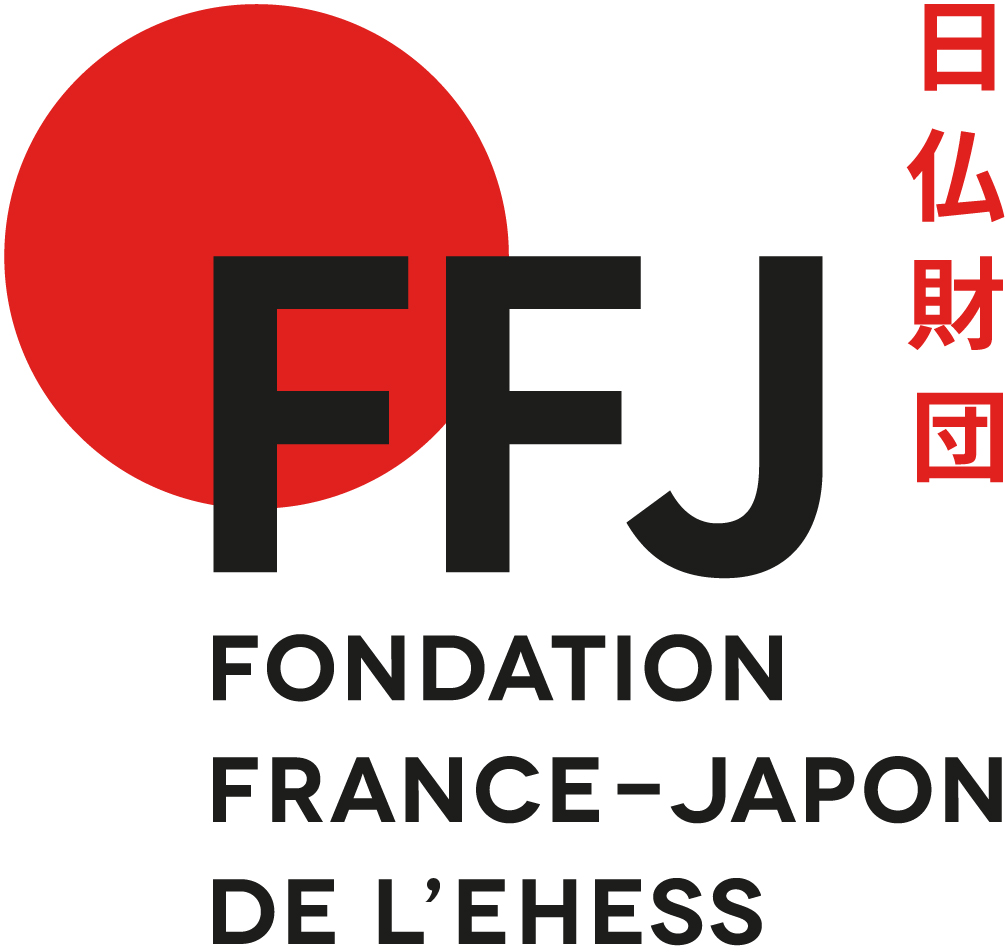Kristin SurakAssociate Professor of Japanese Politics SOAS, University of London Managing Temporary Labor Migration: Public-Private Partnerships in East Asia07/03/2018
 In recent years, migration scholarship has taken a deeper interest in the border-spanning businesses that move people internationally, including labor recruitment, money-lending, transportation, remittance, documentation, and communication services. Operating for financial gain, these “migration industries” play a crucial role in moving people across borders and keeping them connected back home. To date, most work on migration industries has focused on meso-level entrepreneurial initiatives and has devoted little attention to the role of the destination state in their activities. Yet as the state both defines international migration and anchors its regulation, one might expect it to actively engage with migration industry actors fostering cross-border mobility. Low-paid temporary migrant labor programs, or guestwork schemes, offer a prime site for exploring how states may partner with migration industry actors for such schemes require substantial state involvement to ensure they operate as intended. Guestwork programs, in ideal form, control the entry of foreign workers, minimize their impact on the receiving society, and ensure that they leave the destination state at the end of their tenure, with no option for remaining. Governments may carry out these functions themselves or they may outsource the responsibility to other actors. To investigate how destination states partner with migration industry actors to organize cross-border mobility, as well as the implications of such arrangements for control and influence, my work reviews the guestwork schemes in East Asian democracies with strong economies that have become net importers of migrants: Taiwan, Japan, and South Korea. All of the countries implemented temporary low-paid migrant work programs in the early 1990s, and all have a similar history of state involvement with industries and economic growth. Nonetheless, the three cases exhibit substantial variation in how the state has engaged the migration industry to implement guestwork programs. To map the field, I supply a set of orienting divisions based on the nature of the delegation and the types of actors involved: for-profit/formal, for-profit/informal, non-profit/formal, non-profit/informal. Of these cases, the Taiwanese state has gone furthest in devolving guestworker management to the migration industry and its brokers, yielding what might be termed a market-managed program based on formal delegation of responsibilities to for-profit actors. The government strategically uses competition, profit, and loss to ensure rigid control over the system, and it places few efficacious limits on the financial gains that labor brokers skim off migrants’ wages. The result is a competitive business sector that is profitable for the agents responsible implementing the program. The government controls the size through capital requirements for licensing and and limits on the number of foreign workers. As a result, employers and brokers alike vie for limited access to labor. Though direct hiring is also an option, the extensive paperwork required to obtain and retain a guestworker serves as a disincentive that leaves many employers eager to rely on brokers rather than more costly private lawyers. If labor agents are motivated by profit, there is little reason to monitor exit from the program – open spots mean more rewards reaped from placement fees. A largely toothless ABC rating system also provides little motive to perform this role effectively. However, the substantial deposits that brokers and employers leave with the government supply a powerful incentive that ensures that both parties remain vigilant police for the program. Not only the administration of the program, but its monitoring as well has become fully commercialized. The combination of profit-oriented competition and incentives yields a tightly managed system. As such, expansion is limited not by the program structure, but concerns for domestic labor, and growth over the past few years has been continual. Most recently, the government has debated whether the program should be broadened to include foreign care workers to staff the new public health care system under development, which would tie the guestworker scheme to its newest piece of social insurance. In Japan, as in Taiwan, the control of temporary low-paid migrant workers is largely outsourced to private actors, but this occurs through a gray haze of evasive formulations in, effectively, a concealed collaboration between the two parties, based on informal delegation to for-profit actors. Guestworkers are “trainees” offered “scholarship-like” chances for gaining experience in low-skilled jobs in which little training is necessary; employers are “implementing organizations” that provide paid educational opportunities; and brokers enter as “supervising organizations” that ensure that the program runs smoothly. The ambiguity dovetails with general policy of the Ministry of Justice, articulated in weaker terms by other actors, that low-paid migrants workers are not wanted and should not be allowed to enter the country. However, brokers operating for profit effectively implement the bulk of the program, with the informal consent of the state. With relatively small numbers of migrants, the national government is able to ignore many emergent problems, and it prefers to devolve the management of migrant-related issues to the regional or local level. Lack of will to enforce effective oversight of the trainee program leaves brokers to operate with great freedom, while lack of transparency has resulted in substantial human rights violations. This ad hoc arrangement based on hazy procedural interpretations is less amendable to enlargement of the sort now debated in Taiwan, but the government remains uninterested in expansion and continues to turn a deaf ear to industry’s calls for a more capacious formal guestworker program. South Korea’s Employment Permit System (EPS) offers the counterexample, perhaps an unusual one, of de-marketization. Here the state has management of its temporary low-paid migrant worker scheme from the private sector to produce a publically discharged system that exemplifies based on formal delegation to non-profit organizations. Though it originally designed a based on the Japanese system, the government carried out a major overhaul in the 2000s under the banner of “cutting brokers’ ties”. Where brokers once operated for profit, now stands a combination of public associations, government offices, and NGOs constituting what one bureaucrat termed a “planned economy” rather than market-based system. Even employers no longer select workers individually, but rely on the government’s functional matching. The debt burden of migrant workers has decreased as well, as brokers within South Korea are less able to skim profits from their labor. The reforms, however, do not address other common sources of exploitation, including underpayment, overwork, unclear labor contracts, subcontracting, and excessive charges for accommodation, which are hard to contest if labor market mobility is stymied and workers still carry substantial debt. Furthermore, when civic groups helping to implement the program benefit from government funds, economic dependence on them may mute calls for reform if migrants’ rights are consistently violated. Though migrants, on paper, are allowed to change their workplace if conditions are unsatisfactory or even exploitative, they cannot do so independently of the employer, who must give permission to transfer. As a further disincentive, those who do so lose the opportunity to extend their employment contracts beyond three years. With migrants still incurring debt to labor brokers within the sending state and paying fees to the South Korea government to participate on the program, many are reluctant to raise red flags until their outstanding obligations are paid. Yet the number of runaways has decreased – though without deposits, the tight control found in Taiwan is hardly matched. Employers call for changes that would allow for greater numbers of workers on longer contracts and with fewer rights, but the tarnished history of an official broker system has meant that current alterations must remain in line with the anti-broker rhetoric. If this does not prevent rollbacks entirely, it does place a drag on deregulation. South Korea’s Visit and Employment Program (VEP), the companion program of the EPS, operates as a publically overseen scheme, in which the state, de fact, devolves implementation to non-profit enterprises. The relationship between the state and the services that coordinate mobility for the program is informal, as participants are able to rely on the facilities in place for nationals, and as such, no dedicated outsourcing is needed. Recent changes to the scheme also suggest that governments may be able to reverse outsourcing to the migration industry. Not only may privitization be rolled back, but guestwork programs as well, which exist in diminished form with public facilities tacking on migrant services to the programs they already offer. In recent years, intra-governmental negotiations have lifted the limited controls on mobility in the labor market and length of stay, and the VEP program is ceasing to resemble a temporary migrant work scheme.
States have often delegated migration policy implementation to other actors, from the nineteenth century steamship companies that ensured passengers complied with US entrance stipulations to the private companies running visa background checks or managing detention centers today. Though the Westphalian state, in ideal typical form, may have the final say over its cross-border flows, it can also find it more expedient to engage – or leave – other actors to manage them. The possible reasons are many, including limited infrastructural capacity, possible resource savings, claimed efficiency gains, and persuasive client politics. Yet little research has specified the particular dynamics at play when states effectively outsource migration management to third-party actors. Understanding these delegation relationships through a principal-agent framework can help identify the properties and stakes of common, yet distinct, configurations based on profit orientation and the nature of the contractual relation: for-profit/formal, for-profit/informal, non-profit/formal, non-profit/informal. This is not to suggest that these relationships are unique, static, or omnipresent. Countries do not always rely on a single delegation type – they may use different configurations for different programs – and the same program may encompass more than one configuration. Individual programs may shift over time as well, with a drift towards privatization common, driven by the profitability of mobility. Nonetheless, applying these heuristic divisions to immigration policies, and guestwork schemes in particular, sheds light on the ways that receiving states may partner – or not – with migration industry actors to manage immigration programs, and the particular risks and rewards of each configuration. For the full analysis, please see: “Migration Industries and the State: Guestwork Programs in East Asia” |
 |
Recherche |  |
FFJ Research Statement |  |
Kristin Surak |
| Inscrivez-vous à notre Lettre en cliquant ici |
*En cas de problème, vous pouvez aussi vous inscrire en envoyant un mail à sympa@ehess.fr, avec pour titre "subscribe ffj_french_news".





